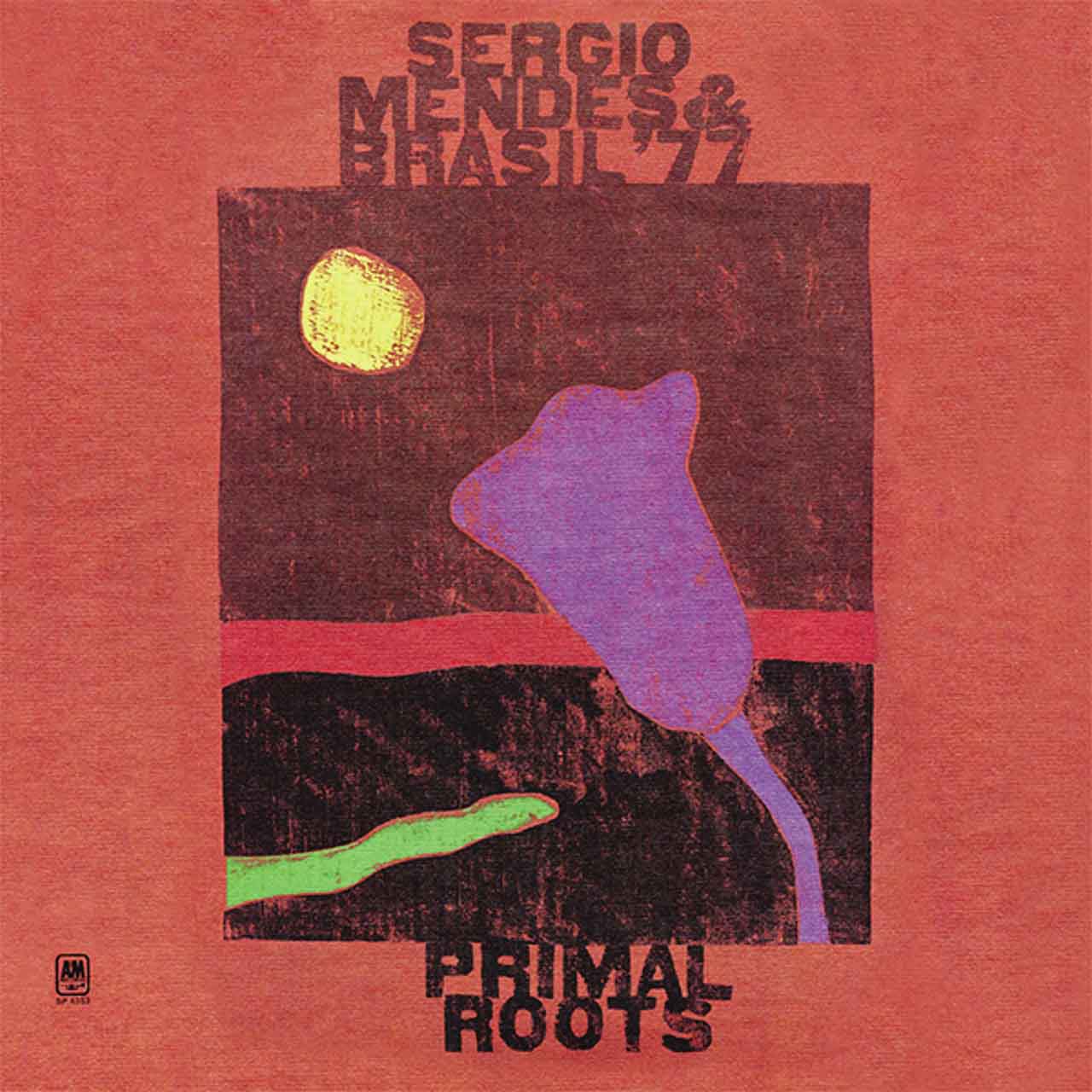From the mid-1960s to the early ’70s, Sergio Mendes & Brasil ’66 specialized in a hugely successful strand of bossa nova-informed sophisti-pop. Their signature sound, squarely targeted toward U.S. audiences, was often branded as “easy listening” because it was: exotically, seductively cool (e.g. their 1966 breakout hit rendition of Jorge Ben’s “Mas Que Nada”), yet still comfortably lite and familiar thanks to the group’s gentle, cross-national female vocals (initially via American Lani Hall and Brazilian-born Bibi Vogel) and frequent cover versions of Beatles songs and Western pop smashes. Born and conservatory-trained in Niterói, Brazil, pianist/composer Mendes understood the allure of merging styles since forming the Bossa Rio Sextet and collaborating with jazz great Cannonball Adderley on his first stateside recording session in the early ’60s. In 1972, with Brasil ’66’s commercial apex behind him and his group’s rechristened name, Brasil ’77, reflecting the new decade’s possibilities, he lovingly crafted an outlier within an otherwise crossover-dominated career.
Atypically, Primal Roots features nary an English-sung lyric or breezy pop cover. Rather, Mendes turns his focus to the folk music of traditional Afro-Brazilian religious sects and rituals, spotlighting instrumentation like agogô (Yoruba bell), cuíca (friction drum), and atabaque (tall hand drum) within his alternately gorgeous and dynamic arrangements. Based on the main refrain from Bahian singer/composer Dorival Caymmi’s original composition, “Promise of a Fisherman (Promessa De Pescador)” pays respects to Iamenjá, Bahian patron spirit of the ocean. Mendes’ inclusion of stately organ (courtesy of legendary composer/arranger Clare Fischer) underscores the faith inherent in the song, an appeal from a fisherman to Iamenjá for the safety of his son.
A reading of Brazilian guitar giant Baden Powell’s “Iamenjá” similarly pays homage to said goddess via lovely interplay between Oscar C. Neves’ guitar and Mendes’ piano. “Canto De Ubirantan” and “Pomba Gira” are infectious bursts of samba rhythms and call-and-response vocals inspired by salutes to Candomblé deities. From the opening notes of its berimbau and folkloric viola, “After Sunrise” exquisitely captures the anticipation associated with a new dawn, the group’s ensemble vocals (which include Sergio’s longtime collaborator and wife, Gracina Leporace) dispensing lilting “La-la-la’s” that transcend language, region, and culture.
If the aforementioned tracks, none of which exceed three-and-a-half-minutes, feel almost like vignettes, Primal Roots saves its most ambitious and expansive moments for “The Circle Game (Jôgo De Roda”).” An 18-minute-plus suite, it masterfully shifts moods between an exultant samba with group vocals to extended flute, piano, and guitar improvisations to stripped down passages that deconstruct everything. Eventually, as indicated by the title, Mendes and company build it all back up, and complete the musical circle with a thunderous climax. It’s a wonderful, explorative celebration of heritage. Unfortunately, it was a celebration that neither Mendes’ MOR listenership, nor his longtime label A&M Records, quite knew what to do with. As it turned out, Mendes’ creative impulse was simply well ahead of its time. Twenty years later, adopting an approach similar in spirit, he fused traditional Brazilian influences with his innate pop sensibility for 1992’s Brasileiro, and was awarded the Grammy for Best World Music Album. One might even consider it deferred recognition, to some degree, for the bold, purist triumphs initiated on Primal Roots.
Listen to Sergio Mendes & Barsil ’77’s Primal Roots now.





